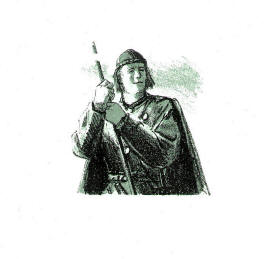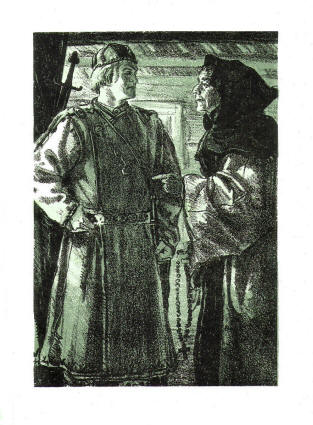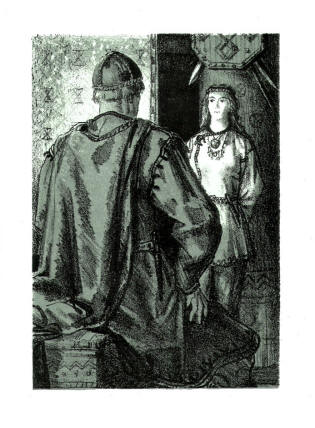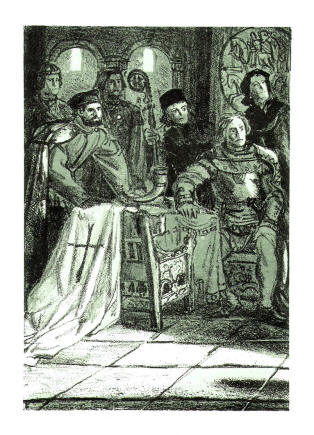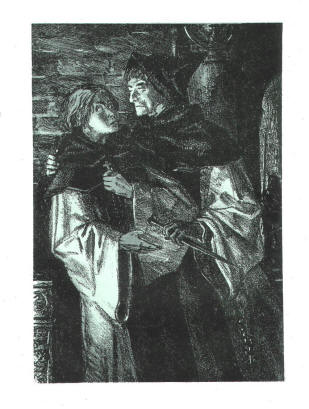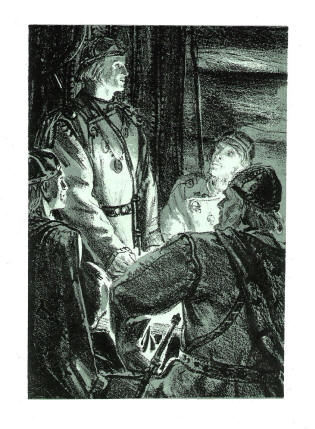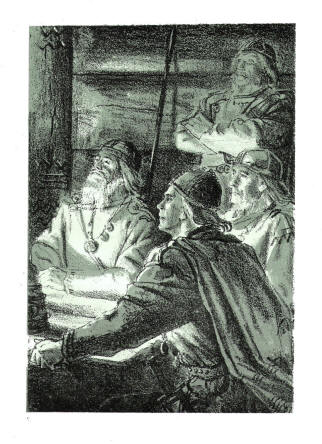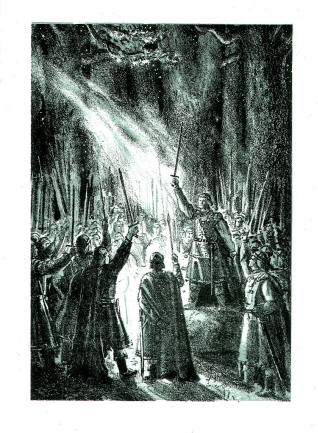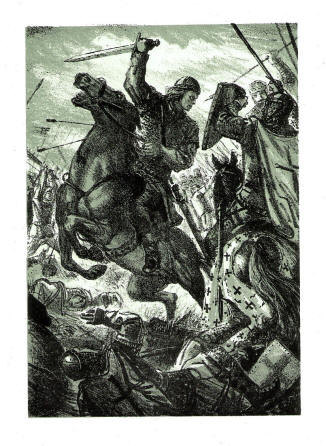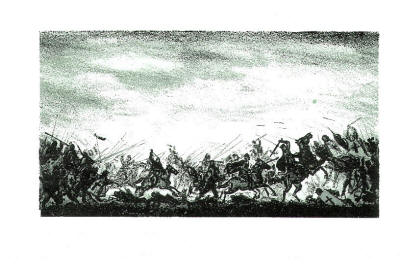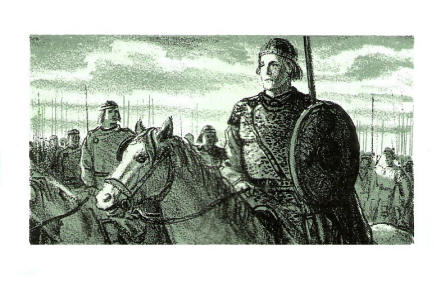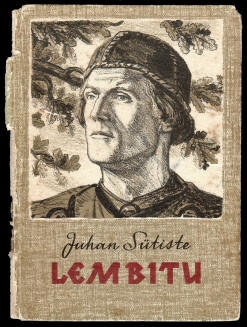|
|
||||||
|
|
||||||
|
People
have gathered around a pyre to mourn their heroes killed in war. The
victims include
|
||||||
|
Priest Alobrand and monk Hendrik, sent as envoys
by the Livonian chief Kaupo, arrive at Lehola stronghold –
the men are also collaborators of the order master
Folkvin and spies. The monks tell Lembitu that his other son called
Meelis, also thought to be dead, is actually alive and imprisoned by
Kaupo. On behalf of Kaupo, they want to trade Lembitu’s son for Kaupo’s
daughter Mare who, in turn, is held in prison by Lembitu. |
||||||
|
Mare is
happy to return home, yet sad to say farewell: she is reluctant to leave
Lehola |
||||||
|
Knights
are revelling at Toreida castle. Priest Alobrand returns from Sakala and
tells the order master about the outcome of his trip, and mentions that
Lembitu had made a military pact with the Prince of Novgorod.
|
||||||
|
|
|
|||||
|
The
stronghold is being reinforced in Lehola. Manivald who accompanied
Lembitu on his trip to Toreida is telling the builders amusing stories
about life abroad. Meelis, clad in his monk’s attire, is tormented by
his promise, given to the church, to kill his father. Gripped by
religious frenzy, he is about to attack Lembitu but at the last moment
realises the atrocity of his intentions. He asks for his father’s
forgiveness and declares himself Lembitu’s son again. The people and
their leader are happy for Meelis. Everybody’s high spirits are cut
short by Mare’s arrival. She has escaped from Toreida and delivers a
message that large troops of the order have crossed Sakala’s border. Men
are preparing for the battle. |
||||||
|
An autumn
night at Lembitu’s war camp. Everybody is in suspense. Lembitu is deeply
concerned about the next day. He recalls an old battle song… Meelis and
Mare who have fallen in love with each other meet again. The young
lovers are very happy, but... |
||||||
|
The dawn is already breaking, there is the sound
of a war horn, |
||||||
|
Kaupo is deadly wounded. Before dying he realises that it was a grave mistake to trust his knights. Alobrand who is sneaking past robs the dying Kaupo of his money. Meelis catches him red-handed and kills him. Mustering his last strength, the seriously wounded Lembitu returns from the battlefield, supported and helped by his companions. The dying leader persuades his people to fight for their freedom.
|
||||||
|
|
||||||
|
|
||||||
|
|
||||||
|
Juhan Sütiste
1899-1945),
an Estonian writer, poet and playwright,
Only one edition of the play Lembitu was
ever published, that of the 1950 edition.
Evald
Okas (1915-2011) was the grand master of Estonian
art. The text accompanying the above images is from the English synopsis of the opera Lembitu by Villem Kapp, based in the Juhan Sütiste play. The premiere of Lembitu took place at the Estonian National Opera on August 23, 1961.
Imagi Gallery |
|
|||||
